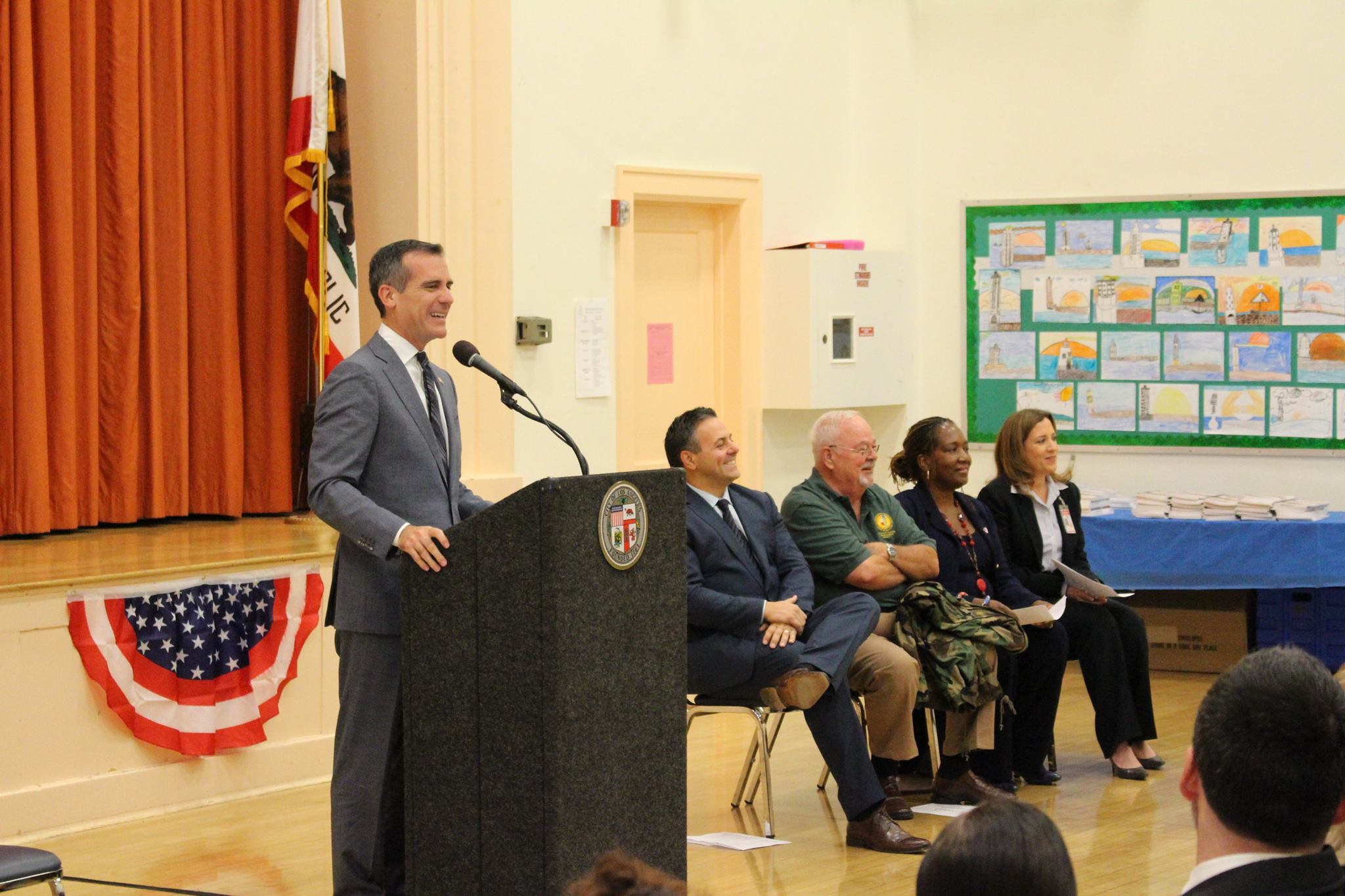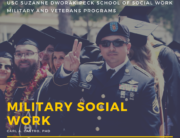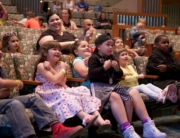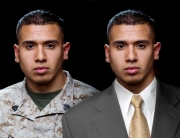Information obtained by school district can help provide resources to students and their families
by Eddie North-Hager
The Los Angeles Unified School District is identifying students whose parents are on active military duty, city and district officials announced at Leland Street Elementary in San Pedro.
LAUSD is the largest school district in the country to ask whether a student has a parent serving on active duty or as a veteran or with the National Guard or Reserves, said USC School of Social Work Professor Ron Avi Astor, who researches the needs of children with ties to the military.
“While these questions only take up a single line, they contain far-reaching implications for students, schools and families by allowing the school district to deliver assistance tailored directly to their needs,” Astor said. “Despite our country’s efforts to integrate military service members into civilian society, their children have long been invisible in large urban public school districts.”
Support services and more
This information will be used to bring community and district resources to schools with the highest concentrations of students from military- and veteran-connected families.
“As a veteran, I have seen the sacrifices made by our men and women in uniform. Their families also pay a price. Because of frequent moves, their children are often the ‘new kid in class,’ who find themselves trying to fit in months after school started,” said LAUSD Superintendent Ramon Cortines. “At LA Unified, we want to do everything we can to help these students and their families, who deserve our heartfelt appreciation for their service.”
The services that could be aimed at these military-connected students include support services, tutoring resources and advocacy assistance.
“For far too long, our city has been unable to strategically target its resources in a way that directly and efficiently supports our military community,” said Los Angeles Mayor Eric Garcetti. “This small change will radically increase support for veterans and their families as they adjust to school and community life during and after the military.”
Astor has worked with school districts around the state, including LAUSD, to identify and better serve military-connected students and has conducted several large-scale studies in California with the USC School of Social Work. The research suggests that the long wars in Iraq and Afghanistan have contributed to higher rates of substance use, weapon carrying, victimization by peers and thoughts of suicide among a sizable proportion of these students.
Emergency contacts
At the beginning of every school year, students fill out an emergency information form, which details the student’s address, birth date and emergency contact. This year, the form was updated to include a question that asks about military ties.
This is the first year that the military student identifier will give principals, teachers and social workers important information about their student population and individual students.
LAUSD is using the information to train more than 1,600 school-based social workers, psychologists, counselors and nurses to provide more focused services. Identifying this population also allows groups like the Los Angeles Veterans Collaborative and USC’s Building Capacity/Welcoming Practices project to help provide resources to support military- and veteran-connected students in LAUSD schools.
“Developing school environments that are aware, understanding and are able to effectively intervene with these students’ needs are crucial to strengthening home/school engagement and supporting resiliency,” said Deborah Hayes, a USC instructor who also represents the LA Veterans Collaborative, an organization of community stakeholders and groups serving veterans and military families in Los Angeles.
Large enrollment
More than 5,000 resource guides developed by USC’s Building Capacity/Welcoming Practices project already have been distributed throughout the district to help teachers develop school-based interventions for children in active duty, National Guard, Reserve and veteran families.
The Los Angeles area has the highest concentration of veterans in the country. Leland Street School Principal Lora Caudill has more than 100 students whose parents are in the military and who represent all five branches of the armed forces.
“With such a large enrollment of military-connected students, we understand the unique challenges they face,” Caudill said. “By identifying our students as the children of servicemen and women, we can provide better and stronger supports for this community within our community.”
Nationally, it is estimated there are 4 million children whose parents have served in the military since Sept. 11, 2001.
“Being able to provide services and resources to those schools with high concentrations of military and veteran students will be a model for other mega-urban school districts like Chicago and New York City where a large proportion of veteran and military families live,” Astor said.








